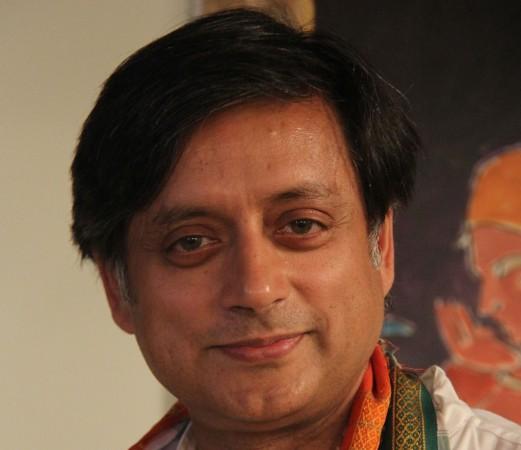
Former Union minister and current Congress MP Shashi Tharoor on Sunday (January 15) said the Jallianwala Bagh centenary in 2019 would be a "good time" for the British to apologise to the Indians for all the wrongdoing that they indulged in during their rule. Tharoor was speaking about his new book — 'An Era of Darkness: The British Empire In India' — at the inauguration of the Kolkata Literary Festival 2017.
Tharoor, a former diplomat and renowned writer, said: "Either the British Prime Minister or a member of the Royal family can come and convey their own profound apologies to the people of India, not just for that atrocity (Jallianwala Bagh massacre) but for all wrongs done during the empire. Why not use that opportunity ? ... that would be a very fine gesture because after all the wrongs were done in the name of the Crown."
He also said that the British, instead of admitting their wrongdoings, have done the exact "opposite."
"They (British) have brushed it under the carpet. There is a certain historical amnesia. You are finding it in the way in which the British are relating to their own colonial past and on top of that, a lot of romanticising of the empire - a lot of self justification is taking place, including the British historians today, who praise the empire as a good thing," Tharoor said.
He added that he has mentioned a "couple of examples... in the preface of the book" about how the British "never apologised to the people of India for what was done here for 200 years." According to him, "the best thing to do is to seek a certain atonement" for all the wrongdoings.
Tharoor cited the example of how Canadian Prime Minister Justin Trudeau apologised for denying entry to hundreds of Hindu, Sikh and Muslim immigrants into the country following the Komagata Maru incident of 1914. The immigrants were turned away from the Vancouver port and returned to India where their future was uncertain.
In 2015, Tharoor's speech at the Oxford Union Society Debate where he had argued why the British owes reparations to India for its exploitation of the country, had gone viral. It was widely appreciated back in India and even Prime Minister Narendra Modi lauded him for the speech.
Tharoor described how and why the British exploited the country and promoted violence and racism as the order in those days.
"It's a bit rich to oppress, enslave, kill, torture, maim people for 200 years and then celebrate the fact that they are democratic at the end of it. We were denied democracy, so we had to snatch it, seize it from you," Tharoor said. Adding a little humour to his argument, he said: "The Sun couldn't set on the British empire, because even God couldn't trust the English in the dark."
He also pointed out how British rule ruined India's economy: "India's share of the world economy when Britain arrived on it's shores was 23 per cent, by the time the British left it was down to below 4 per cent... Simply because India had been governed for the benefit of Britain. Britain's rise for 200 years was financed by its depredations in India."
Tharoor added that the colonial rulers ruined India's thriving handloom industry and turned weavers into beggars. He further added that "India was already Britain's biggest cash cow, the world's biggest purchaser of British goods and exports and the source for highly paid employment for British civil servants. We literally paid for our own oppression."
He also highlighted how 54,000 Indians lost their lives in World War I and how the then colony had to pay 100 million pounds to meet the expenses of the war, the worth of which is over 8 billion pounds today. Tharoor also added that Britain owed India 1.25 billion of the 3 billion pounds debt during World War II. The debt was never paid.
Tharoor also lashed out at the then British prime minister Winston Churchill for letting 15-29 million Indians starve to death during the famine of the 1940s because he was busy diverting all the food to Europe only to be collected as reserve stock.
"When conscience-stricken British officials wrote to him pointing out that people were dying because of this decision, he peevishly wrote in the margins of file, "Why hasn't Gandhi died yet?" Tharoor said.














